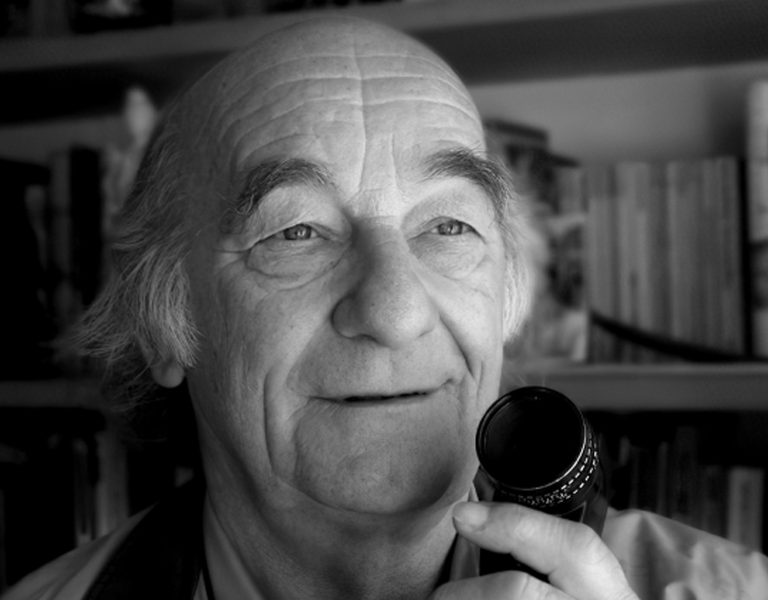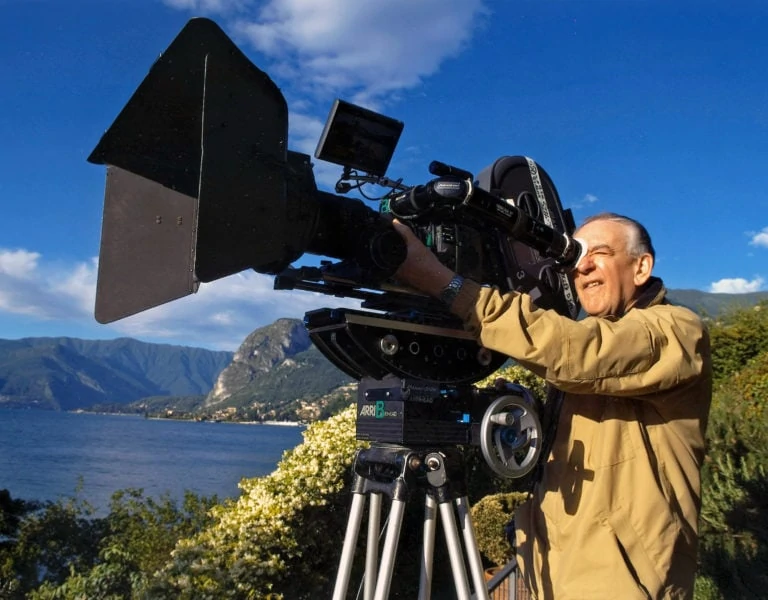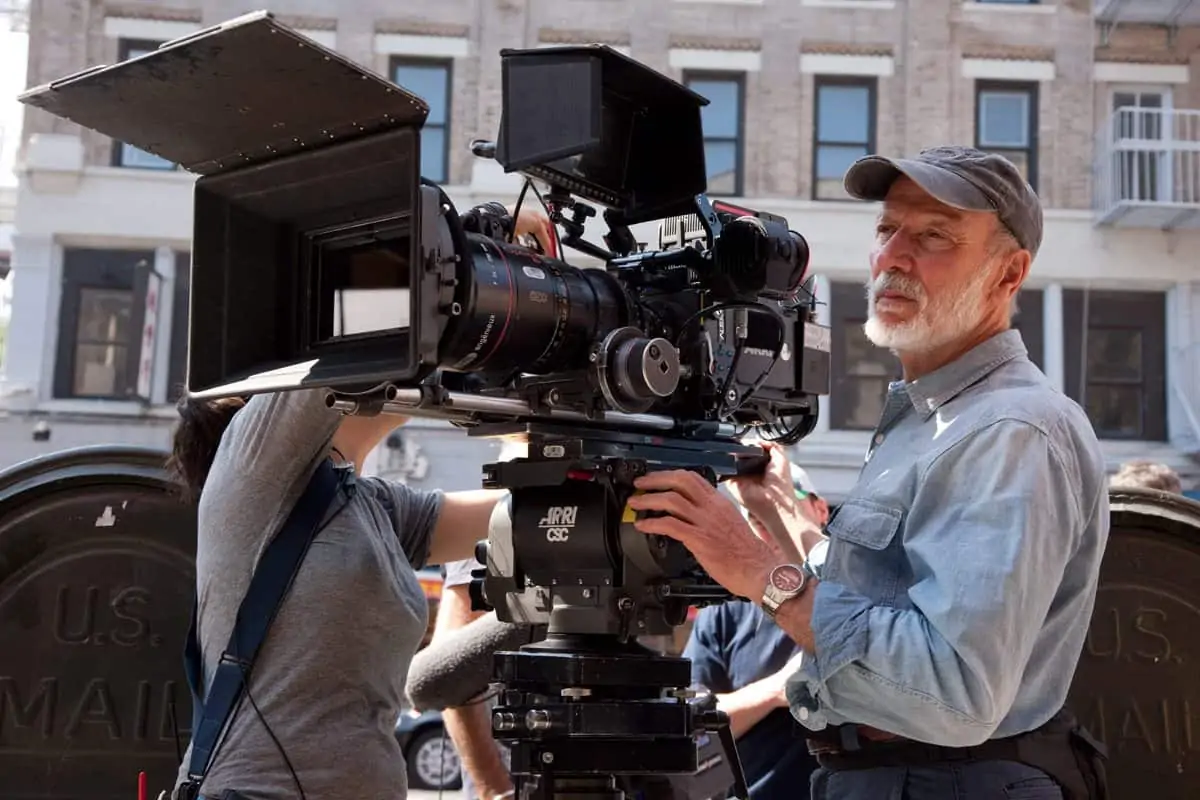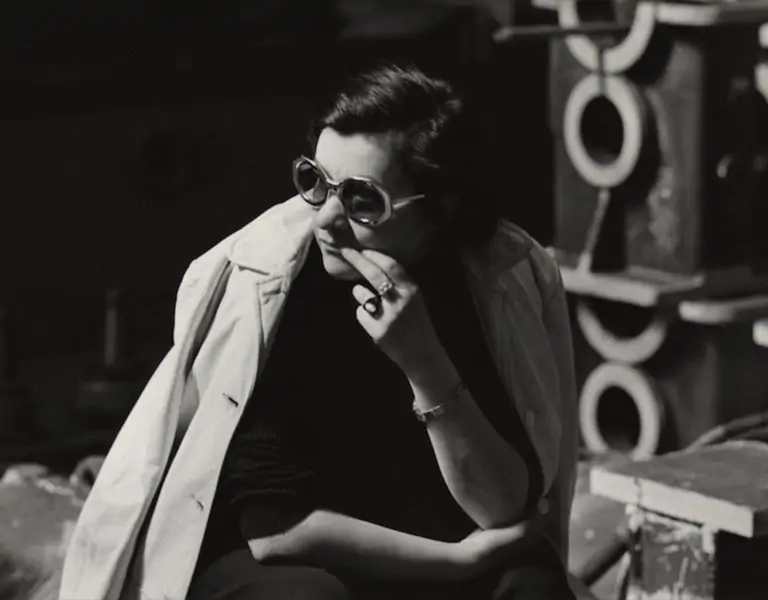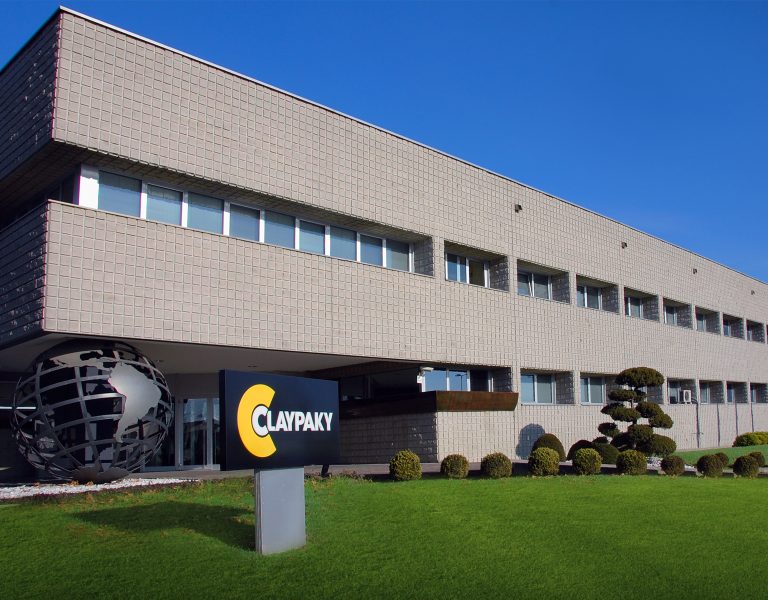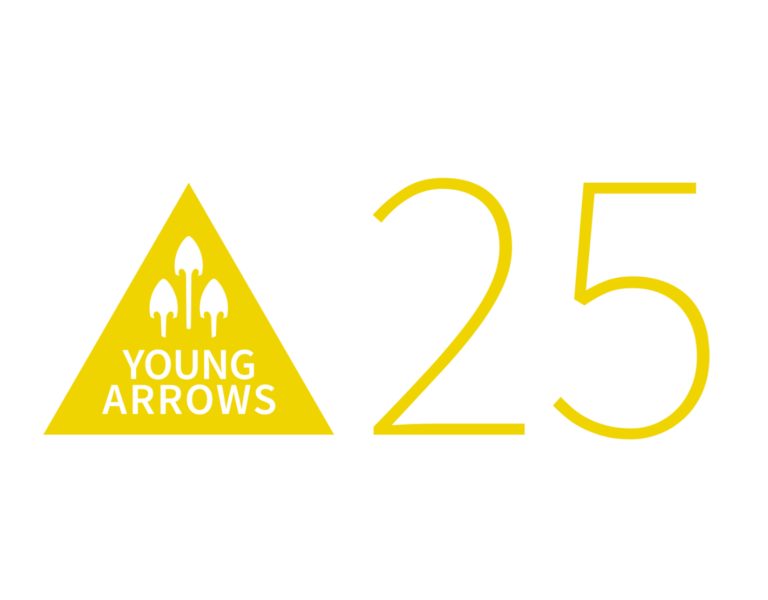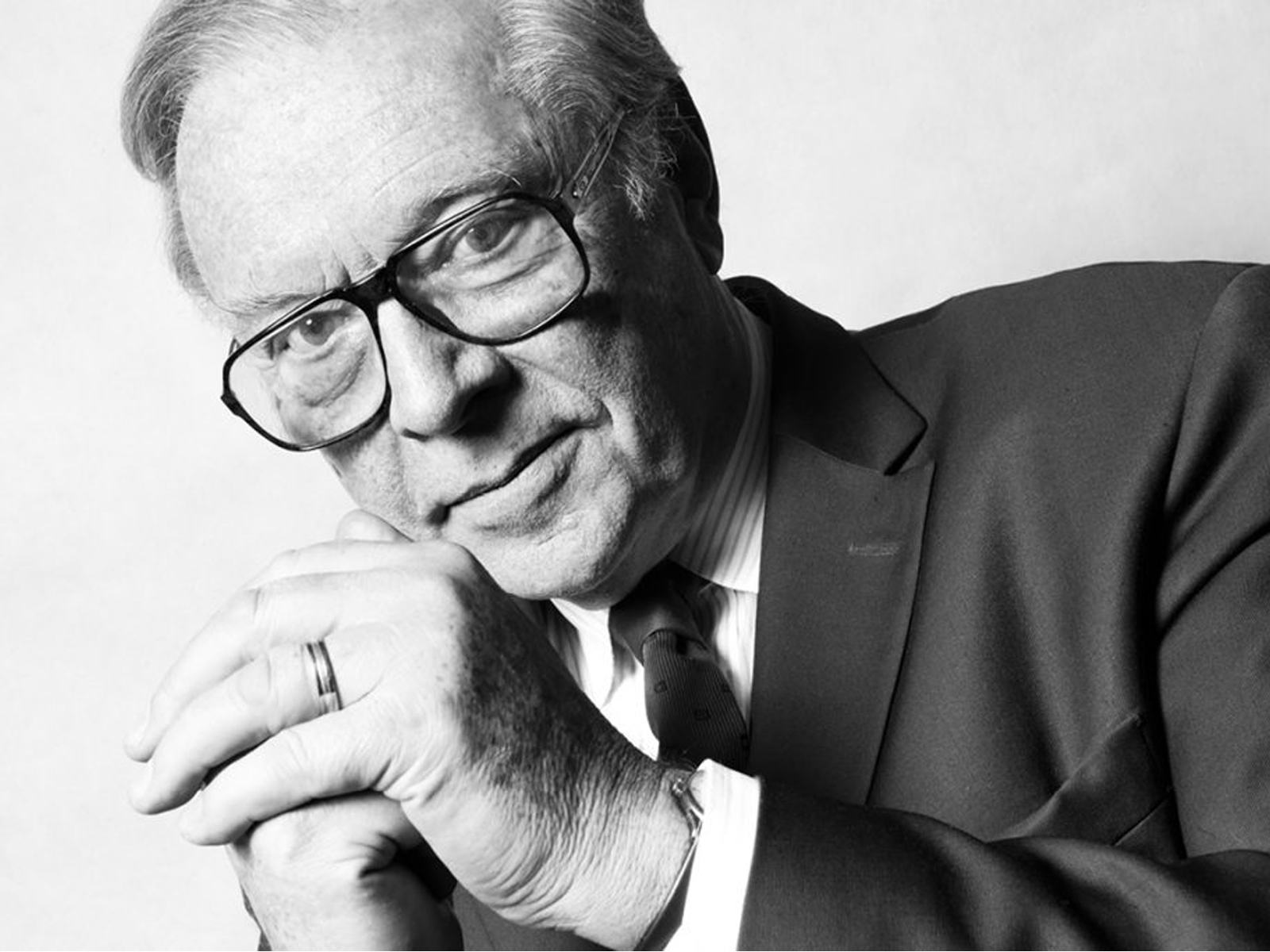
Krzysztof Zanussi is one of the most prominent representatives of auteur cinema in the world.
As a director and screenwriter of all his works, he has developed his own model of intellectual cinema, focused not so much on storytelling as on presenting philosophical and ethical issues. His films have been an inspiration for many other creators and have received numerous awards in Poland and abroad. In November, Krzysztof Zanussi will visit Toruń to receive the Lifetime Achievement Award for Director at the 31st EnergaCAMERIMAGE.
Krzysztof Zanussi was born on June 17, 1939, in Warsaw as the son of Jerzy, an engineer of Italian descent, and Wanda (neé Niewiadomska). He initially studied physics at the University of Warsaw and philosophy at the Jagiellonian University, but eventually abandoned both disciplines, opting instead for studies at the National Film School in Lodz, which he completed in 1966. Even before enrolling in film school, he was making amateur films winning awards at various festivals.
Zanussi has mentioned that he aspired to become a film director after seeing the works of Robert Bresson and Ingmar Bergman, which showed him the potential of auteur cinema. His directorial debut, the diploma film The Death of a Provincial (1966, cinematography by Jan Hesse), which tells the story of a young conservator of historical monuments who ends up in an isolated monastery, foreshadowed the central themes of his work – the juxtaposition of the sacred and the profane, youth and old age, life and death.
After making several medium-length and documentary films, Zanussi directed his first feature film, The Structure of Crystal (1969, cin. Stefan Matyjaszkiewicz). The story of the encounter between two physicists – one of whom settled in the countryside while the other pursued an academic career – is considered part of the so-called third wave in Polish cinema. Asceticism, lack of a traditional plot, and a profound sense of realism, reflected in the cinematography as well, are the defining characteristics of the director’s early work.
In the 1970s, Krzysztof Zanussi created a series of films that have become integral to the history of Polish cinema. In The Illumination (1973, cin. Edward Kłosiński), which explores the dilemmas of a young intellectual, Zanussi employed the form of a cinematic essay, blending narrative scenes with documentary inserts. In Camouflage (1976, cin. Edward Kłosiński), awarded with the Gdańsk Lions at the 4th Polish Film Festival in Gdańsk, he perfected the concept of “cinema of thought,” characterized by the clash of characters representing different worldviews and life attitudes. In the somewhat more conventionally structured Family Life (1970, cin. Witold Sobociński), Zanussi provoked a reassessment of the negative perception of pre-war Poland, while The Spiral (1978, cin. Edward Kłosiński) portrayed the confrontation of a terminally ill individual with impending death.
Zanussi’s films from the second half of the 1970s are often categorized as part of the “cinema of moral concern,” although, being fully authored works, they transcend the boundaries of this genre. They typically feature a young idealist – the so-called “Zanussi hero” – who is confronted with the realities of life. The culmination of this phase of his career was The Constant Factor (1980, cin. Sławomir Idziak), which received the Special Jury Prize at the Cannes Film Festival.
In the 1980s, due to the dramatic situation in Poland following the imposition of martial law, Krzysztof Zanussi began to undertake more and more projects abroad, especially in West Germany, or in collaboration with other countries. In A Year of the Quiet Sun (1984, cin. Sławomir Idziak), which won the Golden Lion at the Venice Film Festival, the director employed the formula of melodrama to explore the themes of sacrifice and dedication. Imperative (1982, cin. Sławomir Idziak) delved into the philosophical dilemmas of a young mathematician, while in Paradigma. Power of Evil (1985, cin. Sławomir Idziak, Pierluigi Santi), he tackled one of his favourite motifs – the Faustian pact.
Since the 1990s, Krzysztof Zanussi has been attempting to connect with a new audience, often by experimenting with different film genres. Some of his most popular films made after 1989 include the autobiographical comedy At Full Gallop (1995, cin. Jarosław Żamojda), which tells the story of growing up during the Stalinist era, and Life as a Fatal Sexually Transmitted Disease (1999, cin. Edward Kłosiński), a drama about a terminally ill doctor facing his mortality. In recent years, the filmmaker has also worked on movies such as Foreign Body (2014), Ether (2018), and The Perfect Number (2022), lensed by Piotr Niemyjski.
Although Krzysztof Zanussi is sometimes regarded as an academic filmmaker, many of his films are, in fact, a source of formal ideas. In his body of work, you can find improvised works (e.g., Behind the Wall; 1970, cin. Jan Hesse), audiovisual essays (e.g., The Illumination; 1972, cin. Edward Kłosiński or Lekcja anatomii; 1977, cin. Horst Zaidler), narrative experiments (e.g., Hypothesis; 1972, cin. Edward Kłosiński), as well as films that adhere to the conventions of genre cinema (e.g., The Catamount Killing; 1974, cin. Witold Sobociński; And a Warm Heart; 2008, cin. Adam Bajerski).
The misconception that Zanussi’s works rely solely on dialogue and have an unattractive visual aspect also requires a revision. The director collaborated with the most outstanding cinematographers of Polish cinema, including Jerzy Wójcik (Face to Face; 1967), Witold Sobociński, Sławomir Idziak, and Edward Kłosiński. Realistic, ascetic cinematography in The Structure of Crystal, the highly evocative and dark portrayal of post-war Poland in A Year of the Quiet Sun and the greenish images depicting a “rotting” world in Paradigma. Power of Evil and Wherever You Are… (1988, cin. Sławomir Idziak) are just a few examples of the visual mastery in the director’s works.
We hope that the retrospective organized at the 31st EnergaCAMERIMAGE in Toruń will not only serve as an opportunity to revisit Krzysztof Zanussi’s outstanding films but also as a chance to reflect on the rich and visually captivating aspect of his cinema.
